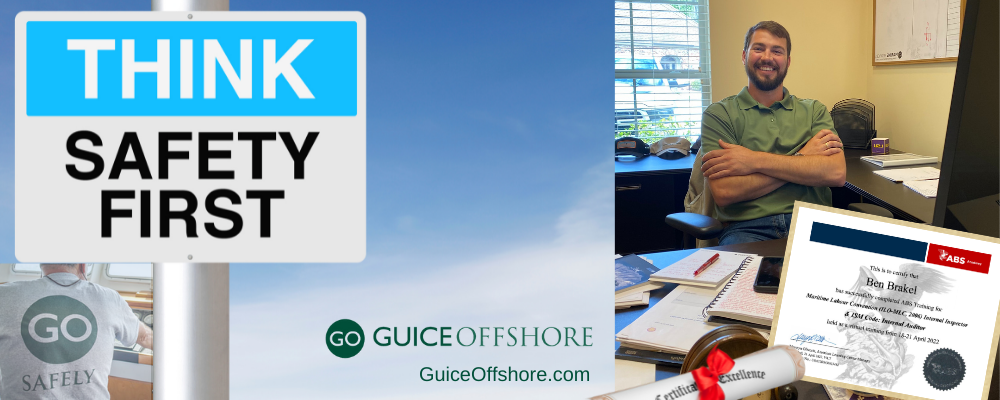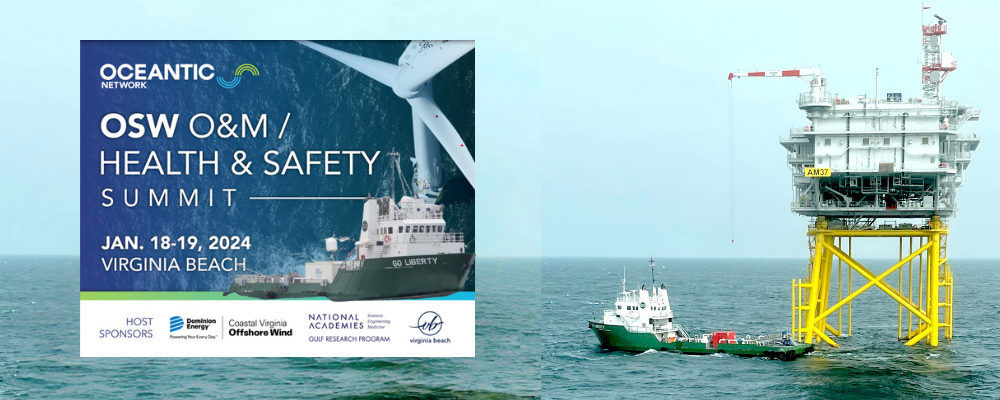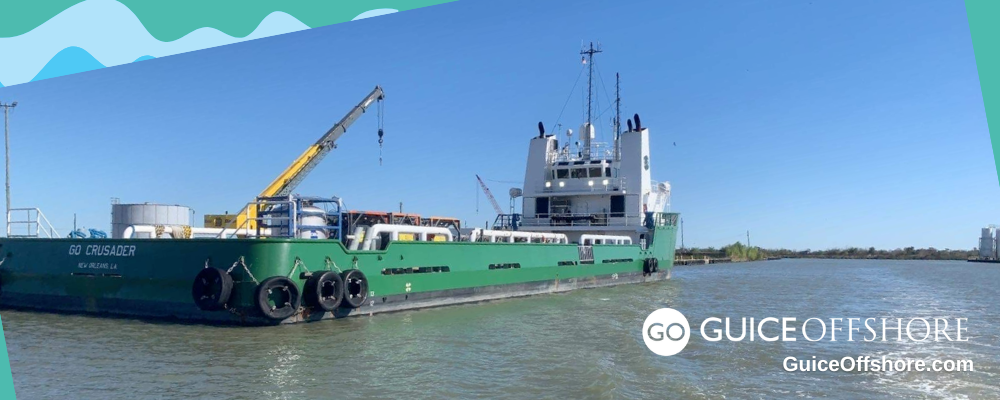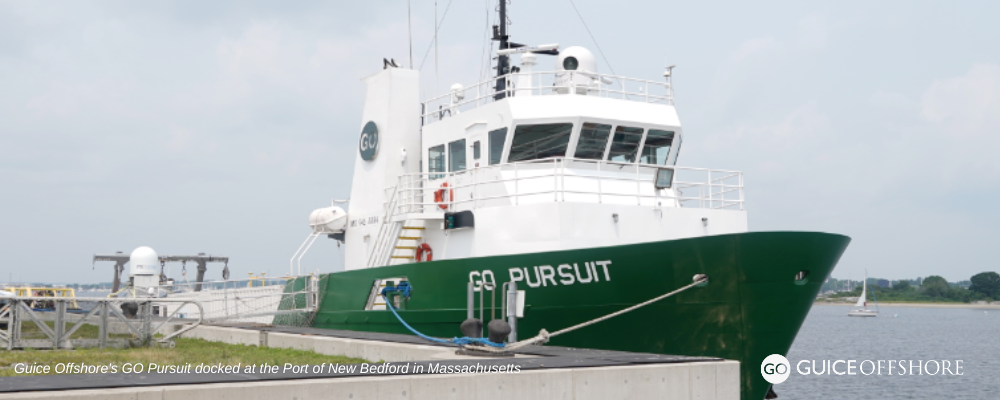Known for our comprehensive management of quality, health, safety and the environment in all aspects of what we do, Guice Offshore is ensuring our respected reputation continues to grow with the recent promotion of Ben Brakel to QHSE Manager.
In his former role as Guice Offshore Operations Manager, Ben learned virtually every aspect of our fleet, the complex logistics entailed in accounting for each vessel and the unique details of each of their missions.
Now, the QHSE acronym in Ben’s new job title stands for Quality, Health, Safety and the Environment—all factors that have been identified as being pivotal in preventing workplace accidents. The maritime environment is particularly challenging, given the mix of giant machines, tumultuous and often unforgiving seas and weather, and long hours requiring unwavering focus on highly technical instruments and equipment.
To fulfill the advanced and rigorous requirements of his new role, Ben achieved certification last month as a Maritime Labour Convention (MLC) Internal Inspector and International Safety Management (ISM) Code Internal Auditor. It’s an important designation that strongly factors in fulfilling Guice Offshore’s regular vessel compliance audits by the U.S. Coast Guard, American Bureau of Shipping (ABS) and even for customer-driven audits, the latter which are often ordered as a backstop to ensure a particular vessel’s suitability and adherence to a chartering organization’s procurement requirements or individual onboard mission needs like equipment and staffing.
While Ben’s certifications were new for him as an individual, Guice Offshore has held both as a company for years, Ben explained.
“Our ISM certification is kind of a big deal,” he added. “It enables us to hold a ‘DOC,’ which is a document of compliance. That tells our customers we are highly organized and have a superior safety management system in place, because safety is essentially what drives our company.”
Most importantly, to pass his Internal Auditor certification, Ben became proficient at reading, navigating and interpreting the ISM Code, an international standard for the safe management and operation of ships, as well as for pollution prevention.
“It’s a whole lot of footnotes and cross-references, too!” he laughed. “But it’s really helped me to look at our company and evaluate safety from a whole new perspective.”
Ben notes that, of particular importance, learning about the International Convention for the Safety of Life at Sea (SOLAS) regulations as part of his MLC certification gave him a new understanding of managing the special safety needs of those working aboard vessels over 500 gross registered tons. The knowledge will help him work fluidly with crews from other larger vessels that may happen to be joining Guice Offshore on any particular job.
“In all cases, we make sure our mariners are taken care of,” he said.
The MLC is an International Labour Organization convention established in 2006 as one of the pillars of international maritime law that applies to all ships entering the harbors of all parties to the treaty. It provides a broad perspective to the seafarer’s rights and fortification at work.
“What is most important to convey about our safety program at Guice Offshore is our internal commitment of choosing to maintain an attitude of following the safety rules and procedures versus having to follow them,” Guice Offshore Principal Billy Guice said. “When we live a daily workplace culture of caring for our fellow employees and ensuring everyone goes home safely each day, we create a mindset that is intolerant of any level of injury.”
Guice Offshore embodies its safety measures in a company-wide policy called “GO Safely.”
It reads:
GO Safely to an Incident and Injury-Free Culture
- It is about caring for one another and demonstrating that care on a daily basis.
- It is about all workers going home safely every day.
- It is about a mindset intolerant of any level of injury.
- It is about taking responsibility for your own safety and those that work with you and around you.
- It is about being proactive and asking questions such as what is the most dangerous thing that can happen to me on this job/task and how can I mitigate against it?
- It is about an attitude of choosing to follow the safety rules and procedures (versus having to follow them).
- It is about speaking up and expressing your concern when you see something unsafe.



